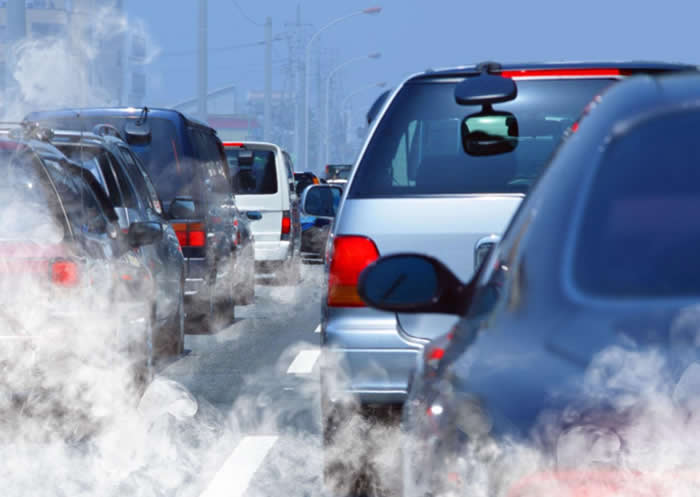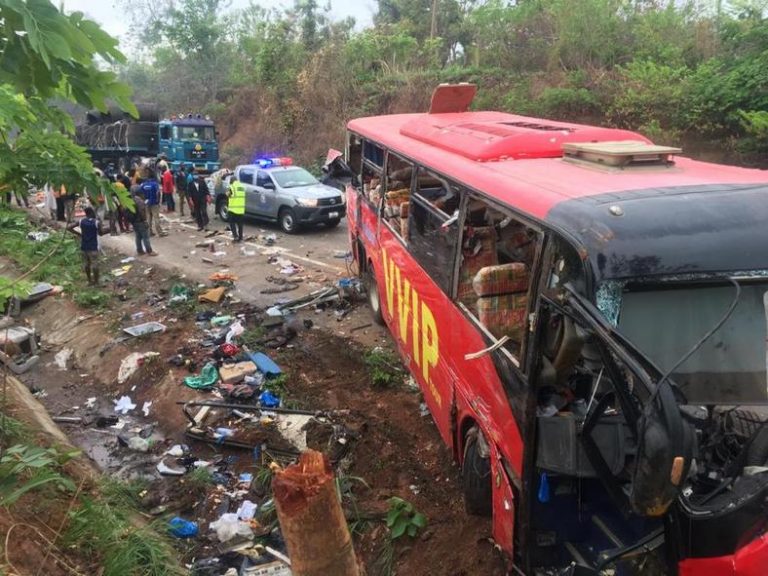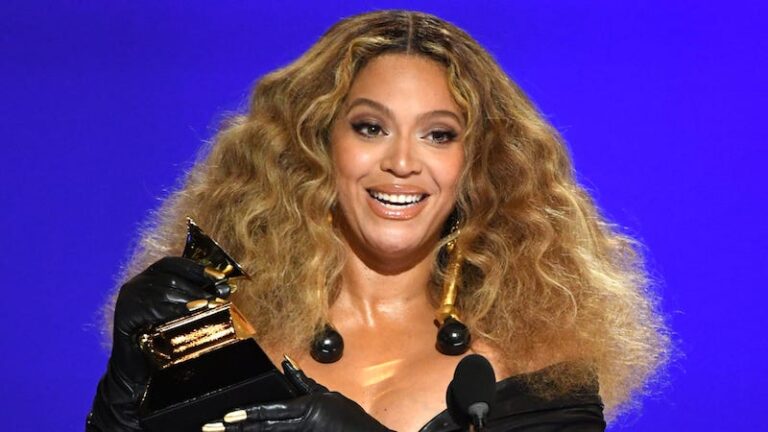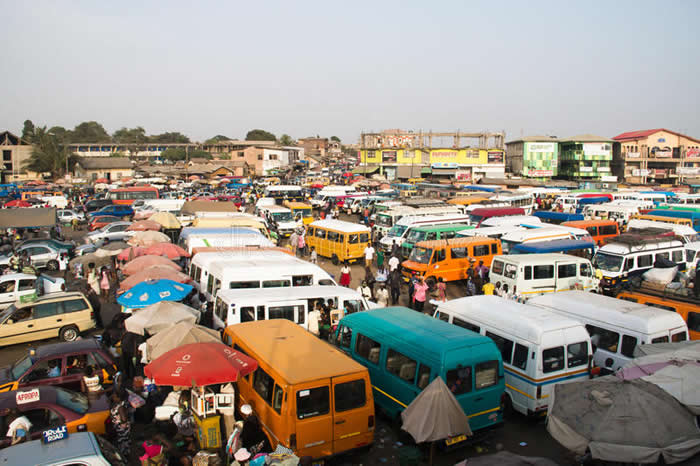Fighting Air Pollution: A Complex But Unavoidable Task
- Home
- Fighting Air Pollution: A Complex But Unavoidable Task

Fighting Air Pollution: A Complex But Unavoidable Task
 There is no doubt that a clean environment is the panacea to the reduction in pollution, protection of biodiversity and ecosystem, prevention of the extinction of endangered species, and the conservation of resources such as water, land and air.
There is no doubt that a clean environment is the panacea to the reduction in pollution, protection of biodiversity and ecosystem, prevention of the extinction of endangered species, and the conservation of resources such as water, land and air.
Regrettably, human activity has contributed to climate change and global warming, which continue to pose threats to our own wellbeing.
Now the earth’s average temperature has increased by about 0.8 per cent, according to an analysis conducted by NASA’s Goddard Institute of Space Studies, and there are changes in climate and weather, resulting in fluctuating rainfall patterns, floods, droughts, and rising sea levels due to melting ice caps, to mention but a few . These have negatively affected the environment, which has also not been spared the effects of land, air and water pollution.
These negative practices and the fatal health risks they pose cannot be overstated. To avert such fatal health disorders, we need to fast track strategies to ensure fresh air (free of pollution), clean water supply and tidy surroundings.
The United Nations (UN) has, therefore, taken up the responsibility of spearheading the campaign for clean environment by instituting the World Environment Day (WED) in 1974 to be observed on June 5, every year.
The event, which is to create worldwide awareness and action to protect the environment, has grown to become a global platform for public outreach that is widely observed in more than 100 countries.
The theme for this year’s WED: “Beating Air Pollution”, should be considered a reminder that the almost neglected issue of contaminated air needs urgent attention.
In reality, the topic manifests people’s aspiration and resolution to improve air quality as the world is confronted with the problem of pollutants that are silently causing health conditions such as stroke, lung cancer, heart diseases, cystic fibrosis, eye irritation and respiratory tract infection, including asthma.
The World Health Organisation (WHO) estimates that 90 per cent of all people on earth breathe dirty air and as Director-General, Tedros Adhanom Ghebreyesus, puts it: “Polluted air is poisoning millions of children and ruining their lives.”
Air pollution is responsible for the early deaths of some seven million people every year, around 600,000 of them children, the report indicates.
The UN calculates that air pollution costs the global economy five trillion United States dollars every year in welfare, and to make matters worse, ground-level ozone pollution is expected to reduce staple crop yields by 26 per cent by 2030.
Again, human activity is giving rise to air pollution with many of the pollutants causing global warming, especially from black carbon produced by diesel engines, burning trash and dirty cookstoves, that are extremely harmful when inhaled.
Reducing emissions of pollutants would not only improve public health but alleviate global warming by up to 0.5 degrees Celsius over the next few decades.
Speaking at this year’s WED celebration in Hangzhou, China, Joyce Msuya, the Acting Executive Director of the United Nations Environment Programme, said: “All around the world, from megacities to small villages, people are breathing dirty air. An estimated nine out of 10 people worldwide are exposed to air pollutants that exceed World Health Organisation’s air quality guidelines”.
The UN Secretary-General, António Guterres, said: “The risks are all too real ….and entire villages are being relocated, livelihoods are being destroyed, people are getting sick from climate-related diseases, and in Tuvalu, I saw an entire country fighting to preserve its very existence.”
However, he gave hope to the world by saying: “What is remarkable about these countries is that while facing this enormous challenge, they have decided that they are not giving up. They are determined to find solutions and have developed ways to increase their resilience and adaptation.”
“Not only that, but they are leading the way in reducing emissions and are an example that the rest of the world should follow.”
Mr Guterres, in offering solutions, advocated that governments must first shift from taxing salaries to taxing carbon.
“We need to tax pollution, not people. Second, we must stop subsidizing fossil fuels. Taxpayer money should not be used to boost hurricanes, spread drought and heatwaves, melt glaciers and bleach corals. Third, we must stop building new coal plants by 2020.”
He also urged governments, industry, communities and individuals to explore renewable energy and green technologies and improve the air quality in cities and regions across the world.
The failure of governments to ensure clean air is nothing but denying the people their rights to life, health and well-being, as well as the right to live in a healthy environment.
Mr Boyd David, the UN Special Rapporteur on Environment and Human Rights, told the Human Rights Council that every hour 800 people die, many after years of suffering from cancer, respiratory illnesses or heart disease directly caused by breathing polluted air.
In the Chinese capital, Beijing, a city of 21 million residents, plagued with severe air pollution, the airborne concentration of fine particulates – responsible for many deaths and illnesses – has fallen by a third over the past two decades, beating the target set by the State Council, China’s governing body.
China has made a giant move to deal with air pollution. Within the past eight years, Shenzhen has become the first city in the world to electrify all of its 16,359 public buses, with Shanghai and Hangzhou taking a similar path.
China has become a leader in electric transit, owning 99 per cent of the world’s 385,000 electric buses. The country is not only leading the global market in electric mobility, but is making gains in reducing air pollution and greenhouse gas emissions nationally.
Tiy Chung, the Communications Officer for the Climate & Clean Air Coalition at the UN Environment Programme (UNEP), said: “We are getting at a mix of good policies and technologies. Innovative low-emission technology is at the forefront of a new revolution driven by policies pushing for lower air pollution and de-carbonization of [the] economy.”
The BreatheLife campaign, a joint initiative by the UNEP, WHO, the Climate and Clean Air Coalition and the World Bank, has also waged a relentless fight against air pollution.
To maintain a clean environment, people need to reduce the use of toxic materials; that is any substance, which may be harmful to the environment or hazardous to one’s health if inhaled, ingested or absorbed through the skin. Examples include pesticides, detergents, chlorine and sodium cyanide and especially how such containers are disposed of after usage.
We must also learn to conserve water and energy, dispose of garbage properly, recycle waste products, purchase recycled products, invest in green energy and drive fuel-efficient cars with reduced carbon dioxide emissions.
Paradoxically, developing countries suffering from the worst effects of pollution and climate change have contributed little to the pollution of the air, water and land.
While advanced countries such as France, United Kingdom, United States, China, Japan and Russia have the capacity to deal with environmental challenges, especially air pollution, developing countries are struggling to solve this problem due to inadequate data, funding and personnel.
Ghana, with her limited resources, is grappling with air, water and land pollution as a result of bad environmental practices such as illegal mining, popularly known as “galamsey,” burning of electronic waste in the capital city, Accra, and other urban areas, and toxic fumes mainly from vehicle exhaust, rubbish fires, road dust, and soot from biomass-fueled cookstoves.
At Agbogbloshie, a suburb of Accra, where electronic waste is burnt almost daily, pollutants such as heavy metals and toxic chemicals (including dioxins, furans and flame retardants), are released into the air, water and soil.
The Environmental Protection Agency (EPA), mandated to enforce the laws on sanitation and environment to protect the health of the people, is constrained by inadequate funding.
The EPA, and for that matter the Government, cannot tackle this important task alone and it behoves on organisations and individuals to support to ensure a clean environment.
It is, therefore, welcome news that Mr Muntaka Chasant, a Social Entrepreneur, has joined the band wagon of activists seeking protection for the environment, under the banner: “The Fight Against Air Pollution Is Now “.
Recently his AirMask and Textiles Company (ATCL) led a team of environmental activists to distribute free-of-charge anti-pollution masks, also known as particulate respirators, to street hawkers and school children in Accra, and some workers of the Oil Marketing Companies in Tema, as part of activities to mark the World Environment Day 2019.
Mr Chasant advised against the use of scrap tyres to singe livestock at the Jamestown Abattoir and the burning of e-waste at Agbogbloshie, which generate toxic smoke, posing a serious health risk to residents of the area.
He noted that air quality data and air pollution information in Ghana are inadequate and inaccessible, with air quality monitoring in the country being restricted to only the Greater Accra Region.
Despite the frightening picture of air pollution globally, it appears that not much measures have been put in place to tackle the problem, as is being done to protect water and land.
The time to turn the tide on air pollution is now. The WHO 2018 Report, which indicates that every five seconds somebody around the world dies prematurely as a result of breathing contaminated air, should be enough warning to us.
Everyone must contribute his or her quota, albeit little, to fight air pollution, protect the environment and save precious lives.
By Agnes Boye-Doe
Source: GNA
- Share
Classic Ghana
Classic Ghana brings you into a fun world of arts, entertainment, fashion, beauty, photography, culture and all things in between. Let’s explore these together!







